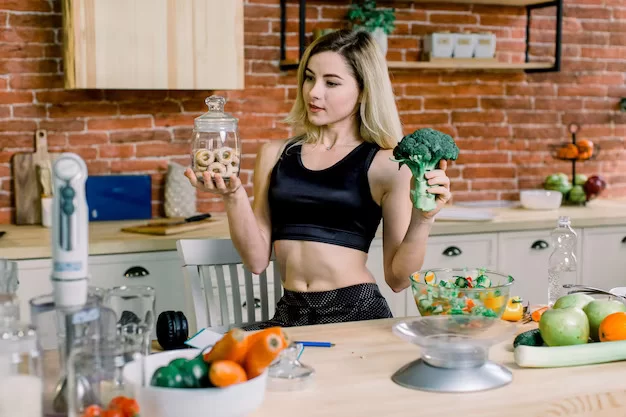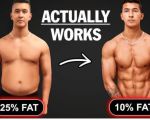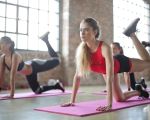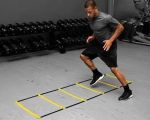
Fueling Your Fitness Journey: The Right Nutrition for Beginners
As someone who's just beginning their fitness journey, you're probably feeling a mix of excitement and uncertainty. One of the most common questions I get asked is about nutrition: "What should I eat to see real results?" Let me tell you from experience, understanding how to properly fuel your body is the key to seeing those fitness goals come to life. Whether you're looking to lose weight, gain muscle, or simply improve your energy levels, the right nutrition can make all the difference. Let's dive into some nutrition tips that have helped me, and many others, succeed in fitness.
1. The Power of Protein: Your Muscle's Best Friend
When I first started working out, I underestimated the importance of protein. If you're aiming to build muscle or even just improve your overall strength, protein is your best friend. Protein helps repair and build muscle fibers after workouts. It’s not just for bodybuilders – every fitness enthusiast needs it. Aim to consume protein in every meal. Sources like chicken, fish, tofu, eggs, and legumes are excellent choices. I remember struggling to hit my protein goals early on, but once I found a routine and made sure to eat a high-protein snack like Greek yogurt or a protein shake after my workouts, my muscle recovery improved significantly.
2. Carbs: The Fuel for Your Workouts
Carbohydrates often get a bad rap, especially in diets that emphasize low-carb eating. However, carbs are essential for fueling your workouts. When you exercise, your body uses glycogen (the stored form of carbs) for energy. Without enough carbs, you'll feel sluggish and your performance will drop. Don't be afraid to include healthy carbs like brown rice, quinoa, oats, and sweet potatoes in your meals. I learned this the hard way when I tried a low-carb diet and found myself dragging through my workouts. I quickly realized I needed to fuel up properly before hitting the gym. The key is to choose complex carbs over simple sugars for sustained energy throughout the day.
3. Healthy Fats: Why They're Vital for Fitness
Yes, fats are necessary. Healthy fats, in particular, are essential for hormone production, including hormones like testosterone, which plays a role in muscle growth. They also support joint health and help with the absorption of essential vitamins. I used to shy away from fats thinking they would make me gain weight, but in reality, including good fats like avocados, olive oil, and nuts in my diet helped me recover faster and feel more energized. Make sure to get plenty of omega-3 fatty acids by adding salmon or chia seeds to your meals. These fats are crucial for overall health and can actually help improve your performance.
4. Hydration: The Unsung Hero of Nutrition
One area that often gets overlooked in fitness nutrition is hydration. Many people think about food first when it comes to fitness, but staying properly hydrated is just as important. Water helps transport nutrients to your muscles, regulate body temperature, and remove waste from the body. During my early fitness days, I didn’t drink enough water, and I often felt tired and sluggish. I soon realized that by drinking enough water throughout the day and during my workouts, my energy levels surged. Aim for at least 8 glasses a day, and more if you're working out intensely. Adding electrolytes to your water can also be beneficial for longer or more intense training sessions.
5. The Importance of Timing Your Meals
When it comes to nutrition, it’s not just about what you eat, but when you eat. After a tough workout, your muscles are craving nutrients to repair and grow. This is where post-workout nutrition comes into play. I make sure to eat a balanced meal within an hour of finishing my workout. A combination of protein and carbs is ideal – think grilled chicken with sweet potatoes or a protein smoothie with fruit. This meal helps replenish your glycogen stores and kickstart muscle recovery. Similarly, eating a small snack before your workout, like a banana or a handful of almonds, can give you the energy boost you need.
6. Supplements: Do You Really Need Them?
Supplements are a hot topic in the fitness world, but as a beginner, you don’t need to go overboard with them. I’ve tried various supplements over the years, and while some can be helpful, they’re not a substitute for a solid diet. If you’re looking to get extra protein, a high-quality protein powder can be an excellent addition, especially post-workout. Creatine is another popular supplement that can help increase strength and muscle mass, but I would recommend you focus on getting most of your nutrients from whole foods first. Supplements are meant to complement your diet, not replace it.
7. The Role of Fiber in a Balanced Diet
Fiber is another often overlooked aspect of fitness nutrition. It’s essential for digestive health, and it helps keep you feeling full and satisfied. When I started paying more attention to my fiber intake, I noticed a significant difference in my digestion and overall energy levels. Foods like vegetables, fruits, whole grains, and legumes are rich in fiber. I try to include a variety of fibrous foods in my meals to keep things balanced and support my overall health. Fiber also plays a crucial role in regulating blood sugar levels, which is important for maintaining energy during workouts.
8. Don’t Forget About Micronutrients
While macronutrients (proteins, fats, and carbs) tend to steal the spotlight, micronutrients like vitamins and minerals are just as important for your overall fitness. These nutrients help with energy production, immune function, and muscle function. I make sure to eat a wide variety of colorful vegetables and fruits to ensure I’m getting all the essential vitamins and minerals my body needs. Think dark leafy greens, berries, and citrus fruits for a boost of vitamin C. These nutrients help support your immune system and allow you to train harder, recover faster, and feel great while doing it.
9. Finding What Works for You
Ultimately, one of the most important things I've learned on my fitness journey is that nutrition isn’t one-size-fits-all. What works for me might not work for you, and that's okay. It’s all about experimenting and finding what fuels your body best. Whether you're a meat-eater or plant-based, there’s a healthy way to fuel your workouts. The key is consistency and balance. Listen to your body, and don't be afraid to adjust your diet as you go along.
Nutrition is a powerful tool when it comes to fitness. By fueling your body with the right nutrients, you’ll have more energy, recover faster, and make more progress towards your fitness goals. Stay committed, stay consistent, and remember – nutrition is not about perfection, but about progress.








